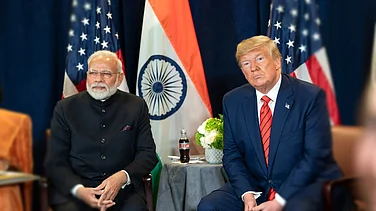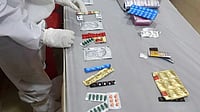Capital markets regulator Sebi on Wednesday cancelled the registration of two brokerage firms -- Pinnacle Brocom and Padmakshi Commodities -- for facilitating its clients to trade in illegal paired contracts on the now defunct National Spot Exchange Ltd.
The trading activities of the brokers in paired contracts for its clients on NSEL platform have serious ingredients jeopardising the reputation, belief in competence, fairness, honesty, integrity and character in the securities market, Sebi's Executive Director V S Sundaresan said in two separate orders.
The regulator has asked the brokers to allow its existing clients to transfer their securities or funds held in its custody within 15 days.
In case of failure of any clients to withdraw or transfer their securities or funds within this period, the brokers will transfer the funds and securities of such clients to another broker within a period of the next 15 days there from under advice to the clients.
In September 2009, NSEL introduced the concept of paired contracts for trading, which allowed buying and selling of the same commodity through two different contracts at two different prices on the exchange platform.
The scheme of 'paired contracts' traded on the NSEL had caused a huge loss to investors to the extent of Rs 5,500 crore, as per the order.
Meanwhile, in five separate orders on Wednesday, Sebi imposed a fine of Rs 5 lakh each on Rukmini Devi Goenka, Vivek Aggarwal, Nidhi Singh, Shreyansh Educational Trust and Gharana Distributors for indulging in non-genuine trades in the illiquid stock options segment on the BSE.
The order came after Sebi observed a large-scale reversal of trades in the illiquid stock options segment of BSE, leading to the creation of artificial volumes on the bourse.
Thereafter, the regulator conducted an investigation into the trading activities of certain entities engaged in the segment on BSE from April 2014 to September 2015.
Sebi Cancels Registration Of 2 Brokerage Firms In NSEL Paired Contracts Case
The trading activities of the brokers in paired contracts for its clients on NSEL platform have serious ingredients jeopardising the reputation, belief in competence, fairness, honesty, integrity and character in the securities market, Sebi's Executive Director V S Sundaresan said in two separate orders

SEBI
SEBI
Published At:
MOST POPULAR
WATCH
MORE FROM THE AUTHOR
×
























